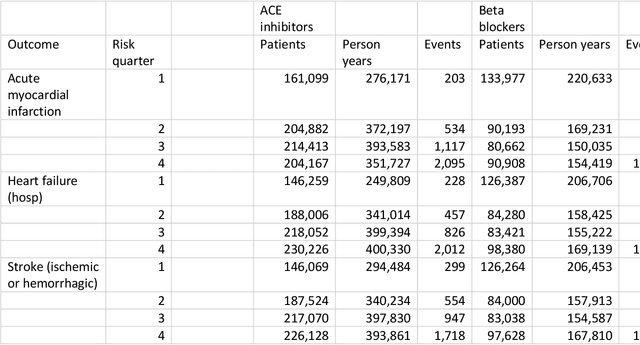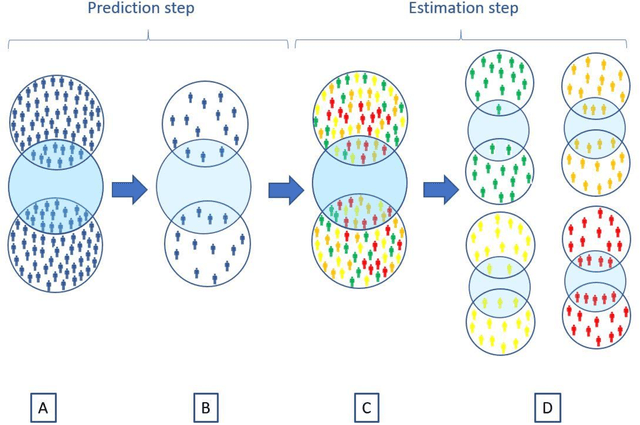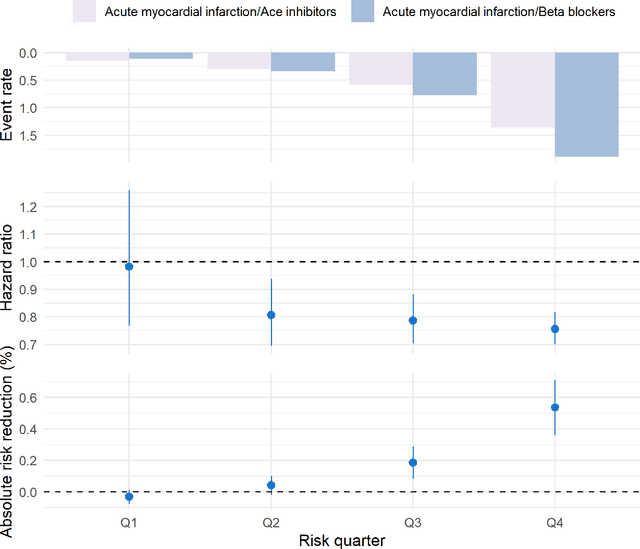Alexandros Rekkas
A standardized framework for risk-based assessment of treatment effect heterogeneity in observational healthcare databases
Oct 13, 2020



Abstract:Aim: One of the aims of the Observation Health Data Sciences and Informatics (OHDSI) initiative is population-level treatment effect estimation in large observational databases. Since treatment effects are well-known to vary across groups of patients with different baseline risk, we aimed to extend the OHDSI methods library with a framework for risk-based assessment of treatment effect heterogeneity. Materials and Methods: The proposed framework consists of five steps: 1) definition of the problem, i.e. the population, the treatment, the comparator and the outcome(s) of interest; 2) identification of relevant databases; 3) development of a prediction model for the outcome(s) of interest; 4) estimation of propensity scores within strata of predicted risk and estimation of relative and absolute treatment effect within strata of predicted risk; 5) evaluation and presentation of results. Results: We demonstrate our framework by evaluating heterogeneity of the effect of angiotensin-converting enzyme (ACE) inhibitors versus beta blockers on a set of 9 outcomes of interest across three observational databases. With increasing risk of acute myocardial infarction we observed increasing absolute benefits, i.e. from -0.03% to 0.54% in the lowest to highest risk groups. Cough-related absolute harms decreased from 4.1% to 2.6%. Conclusions: The proposed framework may be useful for the evaluation of heterogeneity of treatment effect on observational data that are mapped to the OMOP Common Data Model. The proof of concept study demonstrates its feasibility in large observational data. Further insights may arise by application to safety and effectiveness questions across the global data network.
 Add to Chrome
Add to Chrome Add to Firefox
Add to Firefox Add to Edge
Add to Edge